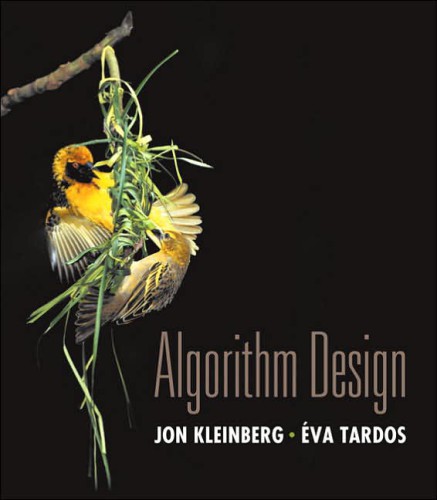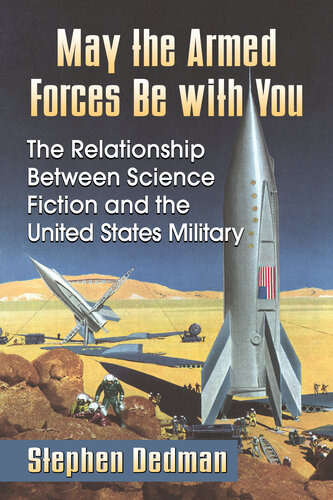oleebook.com
Algorithm Design de Kleinberg, Jon
de Kleinberg, Jon - Género: English
Sinopsis
About the Author
Jon Kleinberg is a Tisch University Professor of Computer Science at Cornell University. His research focuses on issues at the interface of networks and information, with an emphasis on the social and information networks that underpin the Web and other on-line media. His work has been supported by an NSF Career Award, an ONR Young Investigator Award, a MacArthur Foundation Fellowship, a Packard Foundation Fellowship, a Sloan Foundation Fellowship, and grants from Google, Yahoo!, and the NSF. He is a member of the National Academy of Sciences, the National Academy of Engineering, and the American Academy of Arts and Sciences. Eva Tardos is a Jacob Gould Schurman Professor of Computer Science at Cornell University. She earned her Dipl.Math. In 1981 and Ph.D. In 1984 from Eotvos University, Budapest, Hungary. Her research interests include Algorithm Design and Algorithmic Game Theory.
Descargar
Descargar Algorithm Design ePub GratisLibros Recomendados - Relacionados
Reseñas Varias sobre este libro
It's an Algorithms book. So I know what you're thinking "why would I read this book, when the standard text on Algorithms is CLRS, which is in fact so popular that nobody even refers to it by name, but simply as 'CLRS'?" Bear with me here; Algorithm Design is better than CLRS.
Now, it's not as COMPREHENSIVE. If you want a reference book to sit on your desk for later use, by all means use CLRS. CLRS is a great book to pick up, flip to the index, find the thing you're curious about, and read the relevant section on it. Virtually everything you encounter in Algorithms is in that book.
Algorithm Design isn't that way. There's tons of stuff in CLRS that isn't even touched on in Algorithm Design. Basic data structures stacks, queues, heaps, trees, and such are not taught at all. You're expected to already be familiar with these concepts, since they should be covered in a Data Structures course, not an Algorithms course.
Algorithm Design covers exactly 7 things:
1) Basic analysis techniques
2) Graphs
3) Greedy Algorithms
4) Dynamic Programming
5) Divide and Conquer Algorithms
6) Network flows
7) Computational intractability and complexity.
That's it. These topics tend to show up in graduate courses more than undergrad courses, so if you're an undergrad, this probably isn't the right book for you. But if you're taking graduate algorithms, this book is fantastic. The reason why is that Algorithm Design doesn't merely cover those 7 topics, it annihilates them.
The presentation of each topic is so well-covered, so perfectly-paced, so thorough, and so readable, that you almost forget you're reading a textbook. Topics are introduced slowly and gradually. The authors write in a readable style unmatched by any other algorithms book I've ever read. While you are reading, the authors may make a claim. As soon as they do this, they immediately prove it true. The proofs are just as readable and followable as the rest of the text. I never felt lost or confused with this book, it was having an excellent professor close by at all times. Each section is packed with examples - it's not enough to prove something true, Algorithm Design also delves into enough examples that it makes things extremely clear.
My only real complaint is that, in the name of readability, sometimes the book authors deviate a bit too far from standard terminology. As a quick example, proving a Greedy Algorithm to be correct, one must illustrate that it exhibits a) The Greedy-Choice Property and b) Optimal Substructure. These names don't really tell you what they are, so the authors refer to them as the "staying ahead" properties. This works well within the confines of the book because the argument is that the greedy algorithm "stays ahead" of the optimal solution, but I can easily imagine a student using that terminology getting confused looks from peers who learned with other books.
Otherwise, AD is a fantastic book that I cannot recommend highly enough for people studying algorithms within the confines of the limited subset of what the book covers.compsci textbooks32 s Pz23 4
If you need a handbook on algorithms and data structures get CLR. If you want to truly understand algorithm design and analysis, this is your book. Its one of the few textbooks with a coherent narrative, as opposed to the "step 1, step2, QED" style of so many other textbooks. The problems are all really good, too. 5 s Antonis Maronikolakis119 5
A great read for newcomers and more knowledgable readers a.
The first three chapters introduce the basic concepts of algorithm design and graphs, getting an inexperienced reader up to date with the knowledge required for the most advanced stuff later on. Those advanced desing concepts are explained in simple terms (except a few sections here and there that get bogged down in math and notation) that everyone can follow without much hassle.
The main algorithmic techniques are presented in chapters 4 to 7 (Greedy Algorithms, Divide and Conquer, Dynamic Programming and Network Flow). Those chapters offer very intuitive introductions to the subjects, and as they progress, they take on bigger challenges that are still presented in a neat way. Another cool feature is the tie-in with real problems. The reader not only reads about the theory, but is also shown how to solve algorithmic problems. The methodology presented in those chapters can be easily used to solve a wide range of problems.
The greatest plus of the book is the solved exercises it presents. At the end of every chapter it offers detailed solutions to problems, so the reader can really understand how to go about solving the problems on their own. On top of that, the unsolved exercises come in varied difficulties, from tame to very challenging.
All in all, I highly suggest this book to aspiring Computer Scientists.2 s Klock Robbie12 1 follower
Great book on algorithms1 Shen1 review
no code nothing, feel taking english class.1 mimi aaah16 11
Good selection of topics in good organization and order! Too thick! Can be more succinct!1 Sheung2
the book is the chosen textbook so I am more or less forced to read this through.
For readers me who is used to understand problems graphically, pick another book. The book explains reasonably easy problems with drowning notations that are so distracting that by the end of following through the proofs built on those notations, I more often than not found myself getting lost with the main idea.
It is commonly the case that algorithms are not proved in a mathematical way, so I don't see the reason to rely this heavily on notations when the ideas behind are, and should be intuitive.
Also for someone expecting textbooks to be written in plain English, this book is more old school, and in some case, I almost feel a tiny hint of arrogant in explaining the ideas to the readers.
Cynbel87 7
Really good book on algorithms and very in depth, they made everything easy to understand and read. Used for my algorithms and advanced algorithms courses. Exercises are good as well.computer-science maths reference Chai Zheng Xin30 1 follower
Good textbook for graduate class in Algorithms. Focuses on intuitive explanations instead of rigorous esoteric formal language. Liangliang Ren3
So far so good. Ahsanul Ameen1 review
A very profound book for algorithm engineering students Luigi Mangione13 4
Cleanest, most intuitive breakdown of algorithmic thinking I've encountered.
Should be mandatory reading for any mathematician or computer scientist mica76 5
I'm adding this to my goodreads because I read it 4 times for my Algorithms class in university lmao Abhijit Gupta14
I'm halfway through the book. It's fantastic, to say the least. Rarely does one get to see such clear exposition of nuances in 'Greedy Algorithms', 'Network Flow'. I say this because I'm currently reading other Algorithms and DS books too. It's hard not to draw a comparison, especially when the authors make reading enjoyable. Ayberk28 3
It explains the techniques really well and also does a really good job at showing how these techniques are actually used in practice. However, definitely not as comprehensive as CLRS, so buy that one as well because you'll need a reference sooner or later.
Verdict: 10/10, made me understand how to approach DP problems, finally.computer-science Travis Johnson14 2
I had a great time with this book and it's associated class. Seemed a great way to learn algorithms-type things. If I remember correctly, it even had a pretty good overview of the Fast Fourier Transform. Ambarish15 1 follower
it's fun to solve the exercisestechnical Omar Alsaleh4
It's hard to understand. I don't it. Tpinetz60
Its a more specialized version of Introduction to Algorithm. If you are really into algorithms it makes sense to get this. But most of the time its better to get Introduction to Algorithms.computer-science Gleb23 1 follower
I guess it's fair to include the textbooks I read as books I read.
TODO: add reviewnon-fiction Hamdiakoguz1 reviewRead
Rewarding. Will Wang1 review1 follower
Autor del comentario:
=================================












